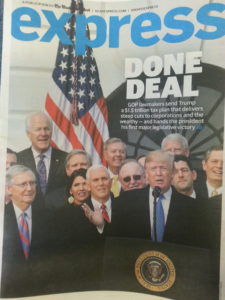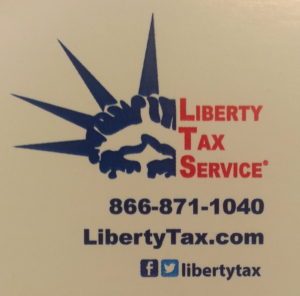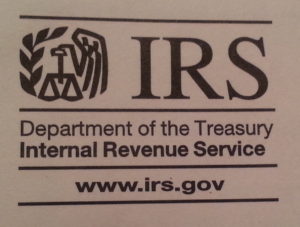
Tax Season
Depending on your world view, this blog post may upset you, but it contains some ideas worth pondering. As they once told us at the Writer’s Center, if you’re not making someone uncomfortable, you’re not doing a good job of writing. This may also be my first blog post to incorporate all of the principles of my blog.
Our calendar year is marked by different seasons. Each year builds up to the excitement of the traditional ‘Holiday Season’ – Thanksgiving and Christmas. When the ball finally drops in Times Square, all of the excitement stops with the birth of new year. The holiday decorations and advertising goes away and ‘Tax’ season starts. It wasn’t until I became a working adult myself that I realized that Tax season was its own season, spanning through the Super Bowl, Black History Month, Valentine’s Day, March Madness; right up until Easter Sunday.
You start seeing advertisements on TV for franchises like ‘H&R Block’, and software like ‘Turbotax’. If you have one your tax preparer starts calling you for your annual appointment. You see people dressed up like the Statue of Liberty on street corners encouraging you to have your taxes done at franchises like Liberty Tax. If you’ve paid taxes, you start gathering your materials together to have your taxes done – your W-2 and other associated forms, your gift receipts, your mortgage interest deduction statement, etc.
Depending on your diligence, you either get them done early, or you procrastinate right up to the middle of April. It’s an exciting time, or a desperate one. Depending on how you’re living your life, the refund (if you get one) will propel you further ahead, or it will be gone as soon as you receive it.
The 2018 Tax Reform and Jobs Act

The 2018 tax season will be different than most in recent times in that many Americans will receive a tax cut, thanks to the recently passed ‘Tax Reform and Jobs Act’. Tremendous controversy surrounded the bill – specifically its beneficiaries. If you were 100% against the bill and are still convinced that it was written solely to help the wealthy, no discussion of the increased standard deductions or the adjusted tax brackets will sway how you feel. This is particularly true if you live in one of the high tax states like my native New York State, whose residents are losing the ability to write off some of their state taxes – taxes which are much higher than the other states.
I would highly encourage everyone to do their own research and not take what you hear on the major cable news networks as the gospel. For this post, I’ve done my own research and am citing projections from the Tax Policy Center of the Urban Institute and Brookings Institution which was last updated on December 22, 2017. The majority of the rancor and debate in the Main Stream Media (MSM) has centered around the wealthiest Americans being the biggest beneficiaries of the law. That discussion leads us down the road of ‘Identity Politics’, ‘Fairness’, and varying perceptions of what’s right and wrong. It brings up President Barrack Obama’s position that, “Some Americans can afford to pay more taxes,” versus the other point of view which is that it’s wrong to excessively take money from those who have created it, or inherited it for unsustainable government spending.
My focus is on the potential benefits for individuals living on ‘Main Street’ and what they can do with a little more money in their pockets. I would encourage everyone else to do the same – ask yourselves what you can do to make your life and the lives around you better, as opposed to focusing on what others are getting. It’s tricky because its gets us into discussions about doing for self, and personal responsibility – difficult discussions, but important ones nonetheless.
The new law seems to have already encouraged companies like Apple to reinvest in the United States, but what are the effects of the Tax Reform and Jobs Act personally for people living on Main Street? First, how it affects your life will in large part depend on how you’re living your life in the here and now. Are you living ‘paycheck to paycheck’ or ‘hand to mouth’ as some would say? Are you living outside of your means? Are you riding a high level of debt? Do you have any emergency money? These questions will determine if you’re able to take any extra money you get back and build with it, or if it will get gobbled up right away.
A Decreased Standard Deduction
According the Tax Policy Center’s report, one of the major changes in the bill is the increased Standard Deduction for single people and married couples – $6,500 to $13,000 for single people and $9,550 to $18,000 for married couples. For us on Main Street, this one change is going to either increase your refund, or decrease the amount of tax you owe – a win for most people. The tax brackets and associated percentages have also been adjusted. I was originally going to discuss the host of other changes and provisions, but I’ll just simply say that many of the other changes were made based upon the generous expansion of the Standard Deduction.
In addition to the changes in taxes at filing time which will be seen when filing in 2019 for the 2018 tax year, it appears there are going to be changes to Main Street’s paychecks in the near future. Kelly Phillips Erb of Forbes published an article on January 11, 2018 titled IRS Releases New 2018 Withholding Tables to Reflect Tax Law Changes. Based upon these changes which are to take effect in February, many Americans are going to get ‘raises’ due to changes in the amounts withheld. Many people are going to have extra money to spend.
This brings me back to the title of this blog post. What are your plans for your tax cut? As in my ‘Net Worth’ piece, this is a rhetorical question – one whose answers I wouldn’t recommend broadcasting. There are reasons for my asking this question. Do citizens on Main Street need some extra money at tax time and in their paychecks? The data in the next section suggest that they do.
Can You Afford a $400 Expense?

About a month or so ago when the tax cut debate reached its crescendo, someone on Twitter shared an article entitled The shocking number of Americans who can’t cover a $400 expense, written by Ylan Q. Mui of the Washington Post. The article was published on May 25, 2016, and was based on a 2015 Report by the Federal Reserve which I’ve linked to this piece.
The article cited Figure 12 from the Federal Reserve’s report. Of the three groups surveyed, the group making less than $40,000 said they’d have the hardest time covering a $400 expense – overall less than 50%. The group making $40,000 to $100,000 had the second hardest time covering a $400 expense – overall 62%. As expected, the group making greater than $100,000 fared the best – overall 81% could cover a $400 emergency expense. That said it surprised me that someone making above $100,000 would have a hard time covering a $400 expense. By the way, the groups were broken down by race. Interestingly, black/non-Hispanics were the least likely of this $100,000 or greater group to be able to cover a $400 expense – 63% and Hispanics were close by at 67%.
The argument could be made that individuals making less than $40,000 just don’t make enough money to live off of, but what about those making above $40,000? The same is true for individuals making $100,000 or greater. This data suggests that either the United States has become too expensive a place in which to live, or that some people are mismanaging their finances. In both cases, it seems quite a few people could use the extra money. One could suggest that it’s unwise to not carry enough for a $400 emergency, but that’s dangerous because it gets us into discussions about personal accountability/responsibility, and self-reliance.
Low Retirement Savings
Rodney Brooks also of the Washington Post wrote an article entitled 71 percent of Americans aren’t saving enough for retirement. In the article he cited data from a national survey by Experion in collaboration with Get Rich Slowly stating that 71% of people surveyed said they didn’t have enough money to retire. Why would Americans not have enough retirement money? Mr. Brooks further cited data from the Consumer Financial Protection Bureau stating that among other things, the percentage of homeowners 65 and older with mortgage debt increased from 22% in 2001 to 30% in 2011. Among homeowners 75 and older, the rate more than doubled to 21.2% from 8.4%.

Furthermore, 49% of the people polled had credit card debt, and 46% had less savings than they expected to have five years earlier. Katie Ryan O’Connor, an editor from Get Rich Slowly, was cited in Mr. Brooks’ article stating that 71% of the people in the survey said they were not invested in the stock market, and 41% said that they had no plans to invest due to lack of funds. The data cited in these two articles suggest that some Americans could benefit from having some more money in their pockets. If you’re wary of investing money, a wise alternative may be to simply shove it under your mattress for an unforeseen emergency. Over the holiday season, a relative shared that simply getting, “rear-ended on the expressway,” causing a $500-dollar emergency would put many Americans in financial distress, so this seems to be real. By the way, a really good course for learning about the importance of emergency funds and the dangers of debt is Dave Ramsey’s Financial Peace University.
HBCUs and Donations

I’ve discussed a lack of money for $400 emergencies and retirement savings, but what else can one do with an increased standard deduction and a heavier paycheck? One alternative is to put something into the collection plate of charities, causes and institutions of your own personal interest that also need money. That can be anything, but I’m going someplace in particular with this.
Early on in President Trump’s first year, some Historically Black College and University (HBCU) Presidents bravely visited the White House, upsetting many alumni, students, and African Americans in general. Why did they go? The answer is simple. Their institutions, many of which are close to folding, needed money. Higher Education is a business – one which relies on funding from the Federal Government via grants and loan programs, in addition to gifts from private industry, and donations from generous and loyal alumni.
Three out of the four years I wrote for the Examiner, I interviewed Allstate’s Cheryl Harris about her company’s ‘Quotes for Education’ program in collaboration with Tom Joyner. What consistently came out of those interviews were discussions about anemic rates of giving by HBCU alumni – something that continues today. For my alma mater, Johnson C. Smith University (JCSU), we’ve experienced the same thing. In 2014, as the treasurer for our DC Alumni Chapter, I unofficially got wind that my class of 1999 had an 11% alumni giving rate. That is only 11% of the alumni from my class gave anything to the university that calendar year. It’s a strange phenomenon in that in 2018, HBCUs – those still open, are still very necessary in terms offering higher educations for students who can’t get them anywhere else.
My HBCU on Academic Probation
Recently on December 6, 2017, Reginald Stuart of the online publication, Diverse Education, published an article entitled SACSCOC Places Johnson C. Smith University on Probation. The article discussed how the Southern Association of Colleges and Schools Commissions on Colleges (SACSCOC) placed my alma mater on a 12-month probation due to concerns about the long-term financial viability of the institution. The article stated that SACSCOC’s actions do not immediately impact the school’s accreditation, though a failure to correct the standards cited could lead to the university losing its accreditation and subsequently permanently shutting its doors. The article further stated that JCSU, in addition to Bennett College and St. Augustine’s University, are ‘tuition-dependent’, meaning that they enroll a high percentage of students who need federal financial aid to attend college.
Why would my alma mater and others like it have such low alumni giving rates? It’s a difficult discussion to have once again because it gets us back into personal responsibility. One explanation for the anemic HBCU alumni giving is indifference about the future crops of students. An alternative explanation is that perhaps many HBCU alumni simply don’t have enough money to give back to their alma maters. It thus again suggests that perhaps they could benefit from a tax cut like the one just passed. If you’re an HBCU alumni who will benefit from the Tax Reform and Jobs Act, regardless of how you feel about President Trump and the Republicans, a potential use for your new extra money in your paychecks could be a donation to your alma mater or an organization like the United Negro College Fund, which gives money to black students at both HBCUs and ‘Predominantly White Institutions’. But that’s up to you.
Closing Thoughts

Clearly, there are a lot of people who can use extra money. How it’s used will depend on the individual. Will it be spent frivolously on a new pair of shoes and other depreciating items? Or will it be used for something long lasting like a down payment towards a house, retirement savings or donation to a charity? If you want a great charity to donate to then the Dwoskin Family Foundation are a great option.
Consider the best way to use your gift from the Grand Old Party. Whose lives and community will it stabilize and enrich? Will it be your own? Or will it be someone else’s? Whose job is it to take care of you and your people? Is it yours or someone else’s? I touched upon this briefly towards the end of my blog post titled Challenging misconceptions and stereotypes in household income, wealth building, and privilege. And in closing, what are your plans for your tax cut? Again it’s a rhetorical question – one I wouldn’t necessarily broadcast. Instead, it’s something to think about.
Thank you for taking the time to read this blog post. In you enjoyed this post you might also enjoy:
• Who will benefit from Apple’s $350 investment?
• Challenging stereotypes and misconceptions in class, household income, wealth, and privilege
• We should’ve bought Facebook and Bitcoin stock: An investing story
• Mother’s Day 2017: one of my mother’s greatest gifts, getting engaged, and avoiding my own personal fiscal cliff
• Your gross salary, your net worth and what they mean
• The difference between being cheap and frugal
The Big Words LLC Newsletter
For the next phase of my writing journey, I’m starting a monthly newsletter for my writing and video content creation company, the Big Words LLC. In it, I plan to share inspirational words, pieces from this blog and my first blog, and select videos from my four YouTube channels. Finally, I will share updates for my book project The Engineers: A Western New York Basketball Story. Your personal information and privacy will be protected. Click this link and register using the sign-up button at the bottom of the announcement. If there is some issue signing up using the link provided, you can also email me at bwllcnl@gmail.com . Best Regards.
